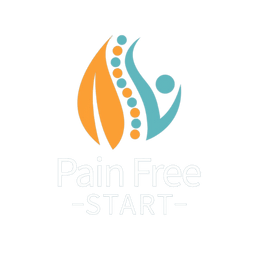Introduction
In today’s fast-paced world, stress and anxiety have become common challenges affecting millions. Thankfully, mindfulness and meditation offer simple yet powerful tools to combat these issues and boost your overall health. From reducing stress to enhancing mental clarity and even supporting physical wellness, the benefits of these ancient practices are backed by growing scientific evidence.
In this blog, we’ll explore the key mindfulness benefits, the health effects of meditation, and practical ways you can incorporate these practices into your daily life for better stress management and well-being.
What Is Mindfulness?
Mindfulness is the practice of paying full attention to the present moment without judgment. It involves observing your thoughts, feelings, and bodily sensations with openness and curiosity. Rather than getting caught up in worries about the past or future, mindfulness encourages grounding yourself in the here and now.
The Benefits of Mindfulness for Your Health
- Reduces Stress and Anxiety
Mindfulness helps calm the mind and body by lowering cortisol levels—the body’s primary stress hormone. Regular practice has been shown to reduce anxiety symptoms and improve emotional resilience. - Improves Focus and Mental Clarity
By training your attention to stay present, mindfulness enhances concentration and cognitive performance, helping you stay productive throughout the day. - Enhances Emotional Regulation
Mindfulness increases awareness of your emotional responses, allowing you to respond to challenges thoughtfully rather than react impulsively. - Supports Physical Health
Studies suggest mindfulness can lower blood pressure, reduce chronic pain, and improve sleep quality, contributing to overall physical well-being.
How Meditation Positively Affects Health
Meditation is a broader practice that often includes mindfulness but can also involve techniques like focused attention, loving-kindness, or mantra repetition. The health effects of meditation include:
- Lowering Stress Levels: Similar to mindfulness, meditation reduces stress hormones and activates the body’s relaxation response.
- Boosting Immune Function: Some research indicates that regular meditation can strengthen your immune system, helping you fight off illnesses.
- Reducing Symptoms of Depression: Meditation can help regulate mood and decrease symptoms of depression and anxiety disorders.
- Enhancing Sleep Quality: Meditation promotes relaxation, making it easier to fall asleep and stay asleep.
Mindfulness and Meditation for Stress Management
Stress management is one of the most accessible benefits of mindfulness and meditation. Here’s how to get started:
- Start Small: Begin with just 5 minutes a day focusing on your breath or body sensations.
- Use Guided Meditations: Apps and online videos offer guided sessions that make meditation easier for beginners.
- Practice Mindful Moments: Take breaks throughout the day to pause, breathe deeply, and notice your surroundings.
- Be Consistent: Like any skill, mindfulness grows stronger with regular practice.
Getting Started: Simple Mindfulness Exercises
- Breath Awareness: Sit comfortably and focus on the sensation of your breath entering and leaving your body.
- Body Scan: Slowly bring attention to different parts of your body, noticing any tension or sensations.
- Mindful Eating: Eat a meal or snack slowly, paying attention to flavors, textures, and smells.
- Walking Meditation: Walk slowly, focusing on the feeling of your feet touching the ground and your body moving.
You might find these blogs interesting;
The Mental Health Benefits of Walking: A Simple Step to a Happier Mind
Chronic Pain and Movement: Why Staying Active Helps
Overcoming Chronic Pain: Motivational Quotes to Keep Moving Forward
15 Things to Give Up to Heal Your Body and Mind
Conclusion
Incorporating mindfulness and meditation into your daily routine can profoundly improve your mental and physical health. These practices help manage stress, increase emotional resilience, and promote overall well-being—making them invaluable tools in today’s hectic world.
Ready to start? Try dedicating a few minutes each day to mindfulness or meditation and experience the difference yourself. Enjoy.
Take care, Helen
Helen Manders BSc (Hons) MCSP HCPC
Chartered Physiotherapist Since 2001



